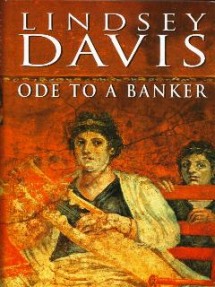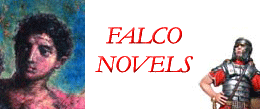 When Falco was but a tyke, his family consisted of his father Marcus Didius Favonius (aka Geminus), his mother Junilla Tacita, and seven children: Festus, Vittorina, Maia, Falco, Junia, Allia and Galla. At the time of this novel his older brother Festus, late of the Legio XV Appolinaris, has been dead three years. We may hear more of how Festus came to his end in the Judean War. His older sister Vittorina died during December of AD71 whilst Falco was in Free Germany, serving the Emperor. Vittorina died of ‘womens troubles’; the remainder of his sisters are alive.
When Falco was but a tyke, his family consisted of his father Marcus Didius Favonius (aka Geminus), his mother Junilla Tacita, and seven children: Festus, Vittorina, Maia, Falco, Junia, Allia and Galla. At the time of this novel his older brother Festus, late of the Legio XV Appolinaris, has been dead three years. We may hear more of how Festus came to his end in the Judean War. His older sister Vittorina died during December of AD71 whilst Falco was in Free Germany, serving the Emperor. Vittorina died of ‘womens troubles’; the remainder of his sisters are alive.
![]()

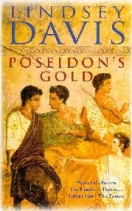 Poseidon’s Gold is somewhat focussed around relationships within the Falco family. It also reveals Falco’s determination to make an honest woman of Helena Justina and bring no dishonour to her family, by marrying out of station-in-life. Due illegal trading by Festus and probing by centurions of his Legion, Falco is charged by his mother to protect the good name of his family; he also takes up the task of protecting his Father’s good name as an auctioneer against the overweening possessiveness of the art collectors, who seek to ruin him, and that, feloniously.
Poseidon’s Gold is somewhat focussed around relationships within the Falco family. It also reveals Falco’s determination to make an honest woman of Helena Justina and bring no dishonour to her family, by marrying out of station-in-life. Due illegal trading by Festus and probing by centurions of his Legion, Falco is charged by his mother to protect the good name of his family; he also takes up the task of protecting his Father’s good name as an auctioneer against the overweening possessiveness of the art collectors, who seek to ruin him, and that, feloniously. The family is the only unit in society based on need. To a degree, this was the same in Roman times, although the extensive fiduciary support we have come to take as the norm in this day and age (i.e. supporting parent benefits, child endowments, etc.) did not exist in Falco’s times.
The family is the only unit in society based on need. To a degree, this was the same in Roman times, although the extensive fiduciary support we have come to take as the norm in this day and age (i.e. supporting parent benefits, child endowments, etc.) did not exist in Falco’s times. We have looked at the basic plot and the landlord’s fiddles which Lindsey Davis raised in Venus in Copper, and examined some of the characters, albeit with a quick glance. We take the opportunity to look at some of the actions of the main characters as the narrative unfolds. On page 290, Falco makes a broad conclusion that all landlords are bullies. Why does he say this, and what bears the weight of Falco’s comment in the narrative?
We have looked at the basic plot and the landlord’s fiddles which Lindsey Davis raised in Venus in Copper, and examined some of the characters, albeit with a quick glance. We take the opportunity to look at some of the actions of the main characters as the narrative unfolds. On page 290, Falco makes a broad conclusion that all landlords are bullies. Why does he say this, and what bears the weight of Falco’s comment in the narrative?  The Falco Novels cover a wide range of human behaviour. All behaviour is values-driven. After all, people, usually seek their own good, their own ends. Look after Number 1 would be a common value held by many people. Giving to the poor and charity would be another value held by others.
The Falco Novels cover a wide range of human behaviour. All behaviour is values-driven. After all, people, usually seek their own good, their own ends. Look after Number 1 would be a common value held by many people. Giving to the poor and charity would be another value held by others.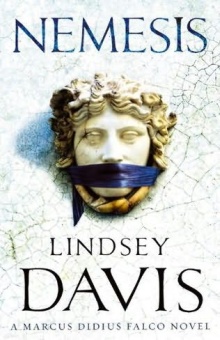 Rome, AD 77 AD, two years before the eruption of Vesuvius – best known for its eruption of AD 79 that led to the destruction of the Roman cities of Pompeii and Herculaneum.
Rome, AD 77 AD, two years before the eruption of Vesuvius – best known for its eruption of AD 79 that led to the destruction of the Roman cities of Pompeii and Herculaneum. March 2009; I have found a copy of Alexandria, and just finished reading it. Delighted. A review will appear here soon.
March 2009; I have found a copy of Alexandria, and just finished reading it. Delighted. A review will appear here soon.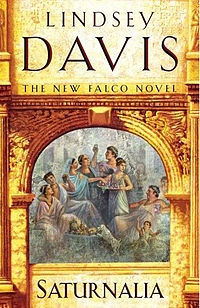
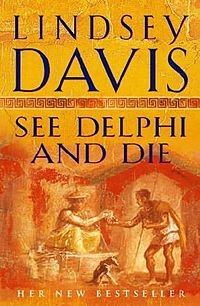 Through his brother-in-law Aulus, Falco hears details of two young Roman women who have died in Greece while seeing the sights of the ancient world. Falco and his wife, Helena, travel to Greece to meet up with the tour party which included one of the women, seeking clues to her murder, passing through Olympia, Corinth, Delphi and the oracle of Trophonius at Lebadeia before finally arriving at Athens.
Through his brother-in-law Aulus, Falco hears details of two young Roman women who have died in Greece while seeing the sights of the ancient world. Falco and his wife, Helena, travel to Greece to meet up with the tour party which included one of the women, seeking clues to her murder, passing through Olympia, Corinth, Delphi and the oracle of Trophonius at Lebadeia before finally arriving at Athens. Marcus Didius Falco and Helena Justina travel to Ostia Antica, ostensibly on holiday. However, Falco is forced to confess to Petronius – present there on secondment – that he is in fact investigating the disappearance of Infamia, the pen name of the scribe who writes the gossip column for the Daily Gazette. He is at first believed to be merely a drunken truant, however investigations uncover some murky secrets.
Marcus Didius Falco and Helena Justina travel to Ostia Antica, ostensibly on holiday. However, Falco is forced to confess to Petronius – present there on secondment – that he is in fact investigating the disappearance of Infamia, the pen name of the scribe who writes the gossip column for the Daily Gazette. He is at first believed to be merely a drunken truant, however investigations uncover some murky secrets.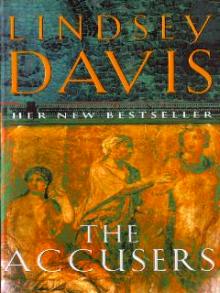 Fresh from his trip to Britannia, Marcus Didius Falco needs to re-establish himself back in Rome. A minor role in the trial of a senator entangles him in the machinations of two lawyers: Silus Italicus and Paccius Africanus, both ex-consuls with notorious reputations.
Fresh from his trip to Britannia, Marcus Didius Falco needs to re-establish himself back in Rome. A minor role in the trial of a senator entangles him in the machinations of two lawyers: Silus Italicus and Paccius Africanus, both ex-consuls with notorious reputations.
 Rome. Novomagius, Britannia, AD75. Falco (the spy who came in from the cold) is in cold, cold, cold Old Britannia, with memories to boot. It was here that he first met Helena Justina.
Rome. Novomagius, Britannia, AD75. Falco (the spy who came in from the cold) is in cold, cold, cold Old Britannia, with memories to boot. It was here that he first met Helena Justina.